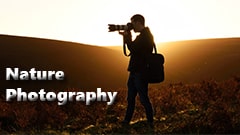If you ask any professional in 2014 about their first equipment they started with. A majority of them are gonna reply with film camera's with just 36 shots or 1/2MP digital camera's which would take picture's similar to the one's like the front camera of your phone at present. The point is, they got started.
You have an 8MP cam,just get started.
I will explain some of the limitation so that you can make the most out of these little gems
1. Low light capability: The size of the sensor is very small in case of phone's camera. Make sure you use natural light to the max possible extent. Sun is your best source, try not to miss the light from it. Shoot only in well lit conditions. Avoid indoors.
2. Stabilise: Hold your breath, stand still and keep your phone still for 1 extra second before and after taking the shots. You may feel you have captured the image well but this is one important tip which can make a huge difference. Practise it to believe it.
3. HDR: Learn about this technique, find apps to capture image using this technique. If applied well, you will be able to get images which are practically impossible for phone camera's specially for nature photography. You may need a mobile tripod. It basically captures 3 or more shots at various settings and superimposes them to give a final well lit and colourful picture.
4. Visualise: Learn to see through the camera, visualise what your camera will capture before pointing your camera. This will help you learn how to frame. Crop before you capture.
5. Do not use digital zoom: If you need to get closer, move forward. Digital zoom is just an illusion of actual zoom.
6. Read the manual: Their are hell lot of settings available in your camera, learn what they mean and how they can be used. Most of the tips & techniques are already available within your phone. Explore and exhaust them first before you begin to search the internet.
7. Try all the available camera apps: Each app tries to integrate some exclusive technique to make the best out of your little cams, learn how or what they are doing.








